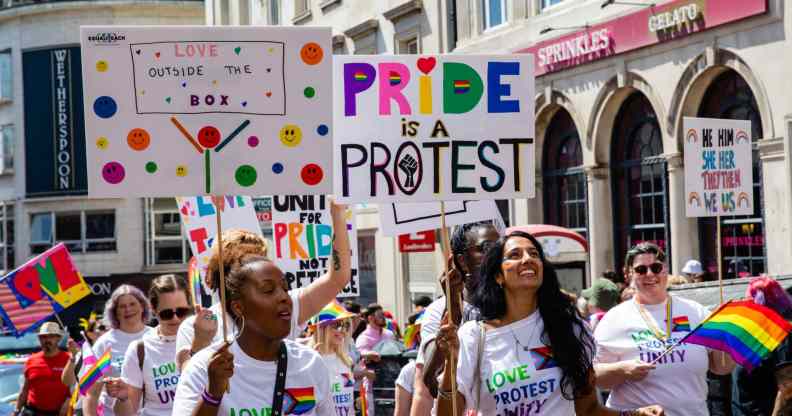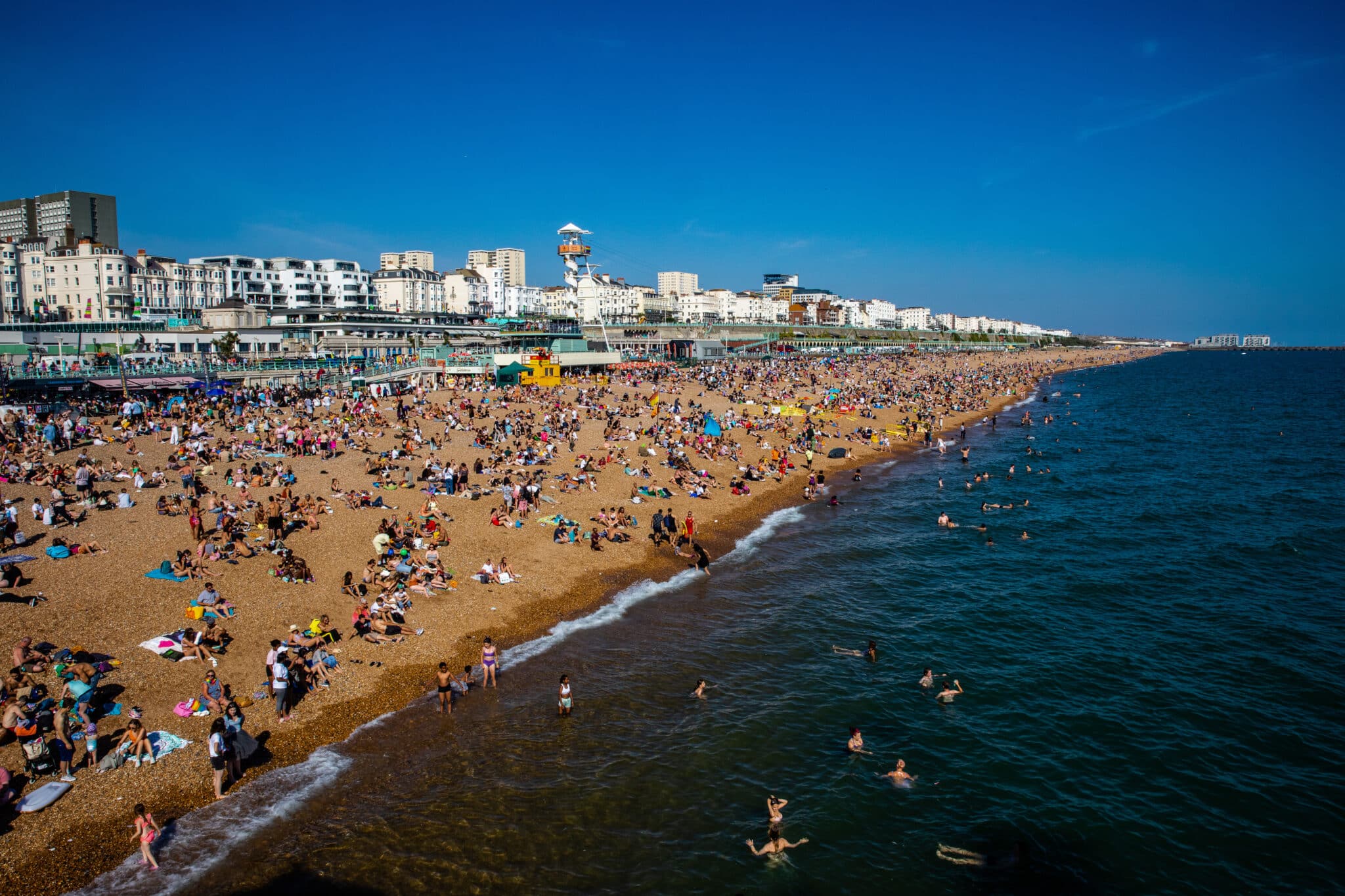Brighton is a ‘safe haven’ thanks to LGBTQ+ charities according to study

a Pride march during the 2022 Brighton Pride. (Getty)
a Pride march during the 2022 Brighton Pride. (Getty)
A recent study has declared Brighton as a “safe haven” and a “place to escape” thanks to the work of LGBTQ+ charities and nonprofits.
LGBTQ+ mental health nonprofit MindOut worked with researchers from the University of Brighton to find the predominant reasons people move to the city in Sussex, as well as the experiences of those who have relocated.
The two-year project, which was led by Dr Zoe Boden-Stuart, found that LGBTQ+ identifying people who struggle with isolation and loneliness are often drawn to Brighton thanks to the support amenities on offer.
“Our research shows how, despite Brighton being known as an LGBTQ+ city, queer people facing mental health challenges can still struggle with isolation and loneliness,” Boden-Stuart said.
The principal lecturer at the Humanities and Social Science Centre added that Brighton offers “LGBTQ+ people ‘safe havens’ to talk about their mental health,” which can be “crucial in helping everyone to feel at home in our city.”

People enjoy the sunshine on Brighton beach during 2022 Brighton pride. (Getty)
Additionally, the Centre for Transforming Sexuality and Gender – which aims to work on creating a better societal understanding of sexuality and gender – helped collaborate on the project.
The research centre discussed the inner workings of those who decided to migrate to Brighton and how their experiences have been so far by talking to various LGBTQ+ communities and societies.
“Many of our researchers have a shared commitment to feminist, queer theoretical approaches, using a variety of methodologies, and many have expertise in participatory, visual, and creative methods,” the research centre explained.
One particular methodology used in the study, dubbed “Queer Quests,” aimed to compare the livelihoods of LGBTQ+ Brighton residents from their previous homes in other cities.
Participants described the move as “liberating,” adding that the city felt like “a place to escape,” while others said there was a feeling of “safety and connection” due to the increased “concentration of gay, lesbian, and queer people” in the city.
Not everyone was completely satisfied, however. Some participants cited continued feelings of isolation and loneliness after having moved.
Factors such as mental health status, neurodiversity, age, gender, class, and financial resources were cited as reasons that discrimination or isolation continued.
“The study recognises that, while Brighton & Hove provided a great deal that was positive for LGBTQ+ incomers, it can sometimes be impossible to escape from negative experiences,” the study added.
Transphobic incidents still occur in the city
Despite being labelled as the LGBTQ+ “capital” of the UK, Brighton is still the subject of many homophobic and transphobic incidents.
During 2022 Brighton Pride, a non-binary Pride-goer was injured after a pub worker “policing toilets” reportedly “flew into a rage.”
The non-binary victim, using the fake name Sam, told PinkNews that they were attacked at the Waggon and Horses pub in central Brighton after attending celebrations on 6 August.
Before leaving the pub, Sam briefly joined the queue to use the toilets.
They said that a “very angry” man who said he worked at the pub barged past them and started shouting that the “women need to get out of the men’s” toilets.
“It was Brighton Pride,” Sam said. “I pointed out to the angry man as gently as I could that [on Pride], of all the days of the year, forcing people to use a particular bathroom might not be the best decision.”
They then explained that the pub worker then “flew into a rage” and inadvertently slammed their head with the cubicle door.
“I’m not here saying I was beaten up,” they said. “I’m saying that he was so full of rage that he ended up actually [hitting me with the door], he could have given me a concussion quite easily.”

